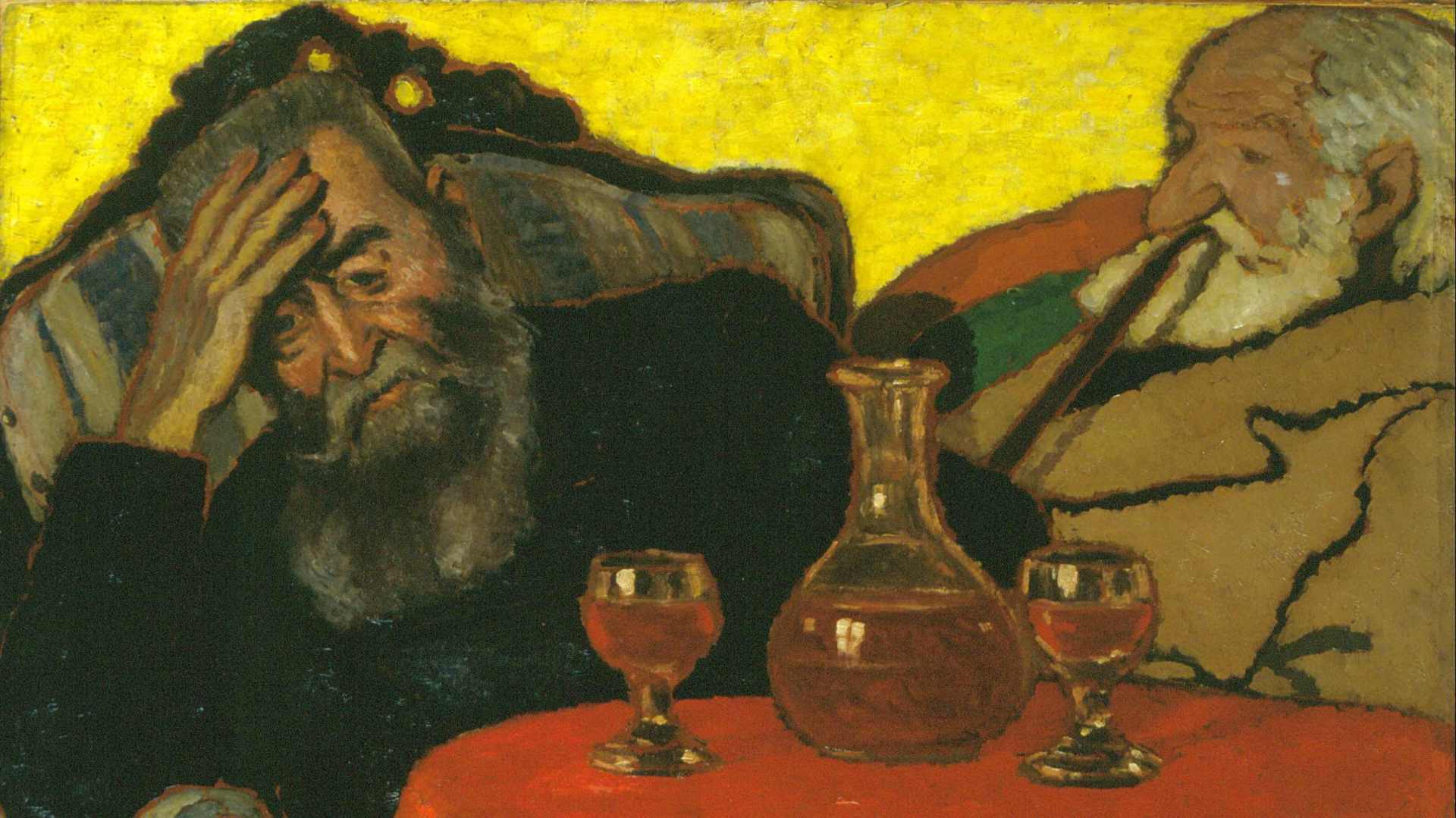In this biweekly feature, we seek to encourage the local church by remembering the times when things were much, much worse.
It’s weird to think about, but a lot of the things we take for granted are almost shockingly recent inventions. The can opener didn’t exist until 1870—nearly a full century after canned food was first produced (people ate so much canned food that year, you guys). Doors have been around forever, but doorknobs weren’t invented until 1878 (and people were finally able to leave their houses). And grape juice?
Grape juice wasn’t a thing until 1869.
That may surprise you. There have always been grapes, and they’ve always had juice, right? Well, yeah…no…sorta. See, the thing about grapes is that their juice is loaded with sugar, and their skins naturally cultivate yeast, so the moment you squash a grape, the yeast gets in the sugary juice and starts turning it into alcohol. The label on that thousand-dollar bottle of cabernet you’ve got in your cellar might tell you otherwise, but, like most of Francis Ford Coppola’s career, winemaking is something a toddler could do by accident.
Prior to the post-Civil War era, if you wanted your grapes to last past next Tuesday, you only had two options: Dry them out and make raisins, or squash them to make wine—and since raisins are only useful for ruining perfectly good cookies, there was really only one option. This was okay, though, because—according to the psalmist, at least—wine is a gift from God:
He makes grass grow for the cattle,
and plants for people to cultivate—
bringing forth food from the earth:
wine that gladdens human hearts,
oil to make their faces shine,
and bread that sustains their hearts. (Ps. 104:14-15)
Christians generally recognized this as true—that is, until Methodists decided it wasn’t true sometime in the early 19th century.
To be fair, alcohol truly had become a blight on society at the time, thanks to the (also surprisingly recent) 1822 invention of the column still, which suddenly made hard liquor plentiful and cheap: destroying entire families, neighborhoods, and cocktails in the process. Horrified by the havoc alcohol was wreaking, Methodists began the Temperance movement and pushed for total prohibition of alcohol. (So, if you want, you could blame early Methodists for Al Capone.)
The problem with the Christian campaign for prohibition, of course, was that throughout the entirety of church history to that point, the most sacred of Christian rituals had involved the consumption of wine. We couldn’t exactly crusade against alcohol while also drinking the stuff, could we?
Enter dentist and ordained Methodist minister Thomas Bramwell Welch. Yes, that Welch.
In addition to having a ridiculous name and a Walt-Whitman-caliber beard, Welch was determined to get alcohol out of Christian worship, and he set out to make an alcohol-free wine. His fix for the automatic fermentation problem was to use pasteurization (invented in 1864) to kill the yeast in the grape juice, and then use refrigeration (invented in 1835 or so, depending on who you ask) to keep that yeast deader than dead.
The result was a totally sterile, Space Age beverage that wouldn’t get anyone sloshed, no matter how many thimblefuls they swiped off the Communion tray. He called the result “Dr. Welch’s Unfermented Wine,” because in the 19th century no one would buy a product that didn’t have at least nine syllables and an honorific in its brand name. The drink, which his son later renamed Welch’s Grape Juice, became a success, at first because it made a nonalcoholic Eucharist possible, and later because it became a guilt-free excuse to sell sugar-water to toddlers.
The upshot, of course, is that if your church uses grape juice for Communion, you’ve adapted an ancient ritual by grafting in a beverage that’s roughly as old as Coca-Cola. Whether that bothers you or not, I think we all can admit that it’s still kind of…weird.
I’m not saying anyone should or shouldn’t use grape juice for Communion—I know every congregation has their reasons for what they do. But something is lost when rituals are altered, even if it’s for good reason.
In the second century, for instance, Church Father Justin Martyr described the Eucharist as follows:
There is then brought to the president of the brethren bread and a cup of wine mixed with water; and he taking them, gives praise and glory to the Father of the universe, through the name of the Son and of the Holy Ghost, and offers thanks at considerable length for our being counted worthy to receive these things at His hands.
"Wine mixed with water” was actually somewhat common in the ancient world; the wine and the water were both usually pretty gross, so they would mix them together to make something palatable, much in the same way you might put a McChicken inside your McDouble. But in the context of the Eucharist, it took on special significance, symbolizing the blood and water that flowed from Christ’s side when he was pierced with a spear.
Historically, this outpouring of blood and water was taken not just as proof of Christ’s death, but as symbolic of the birth of the church—born in sacrificial blood and cleansing water, from the side of the Great Bridegroom, just as Eve had been born from the side of Adam. As St. Augustine, writing in the fourth century, put it, “This second Adam bowed His head and fell asleep on the cross, that a spouse might be formed for Him from that which flowed from the sleeper's side.”
That, in the end, is the beauty of wine: It’s new life, a living beverage. The grape dies, but it’s reborn through the yeast, just as Christ died and rose again—and just as the church is granted new life whenever we taste and see that the Lord is good. That’s a message that the sickly-sweet stuff in your fridge can’t quite convey: Here is the fountain of life. Come be reborn.









